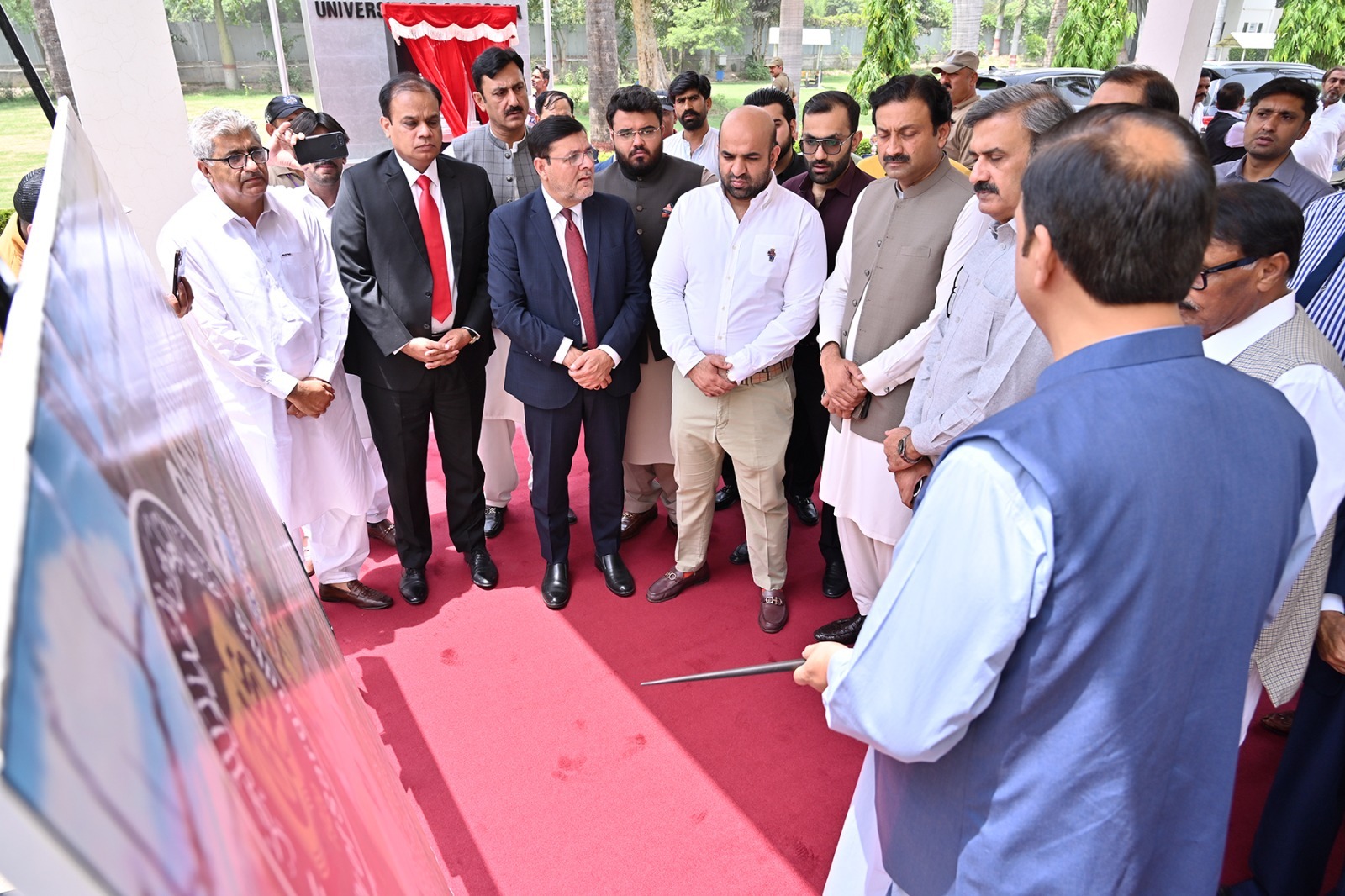News
Punjab Minister for Higher Education Rana Sikandar Hayat inaugurated the 2.6-megawatt Solar Energy Power System at the University of Sargodha.
A formal inauguration ceremony was held at the Vice Chancellor’s Office, where the Minister participated as the chief guest.
The event was attended by Vice Chancellor Prof. Dr. Qaisar Abbas, Secretary Higher Education Department Dr. Farrukh Naveed, Chairman Punjab Higher Education Commission Prof. Dr. Iqrar Ahmad Khan, Member of the Provincial Assembly Asim Sher Maken, along with the University’s deans, directors, and a large number of dignitaries from the city.
Speaking at the occasion, Minister Rana Sikandar Hayat said that the University of Sargodha’s initiative to complete the solar power project through its own financial resources is not only a commendable step but also a significant move toward sustainable development. He stated that the project would not only promote alternative energy sources in educational institutions but also help the University save millions of rupees annually in electricity expenses.
He further remarked that it is a matter of pride that the University of Sargodha is the first public sector university in Pakistan to take such a practical step towards green energy. The project, he noted, will also contribute to environmental preservation and help tackle the country’s energy crisis.
He congratulated Vice Chancellor Prof. Dr. Qaisar Abbas and his entire team on this achievement and expressed hope that other universities would follow this example and adopt similar eco-friendly initiatives.
On this occasion, Prof. Dr. Qaisar Abbas briefed the Minister that the University of Sargodha holds the distinction of being the first public sector university in Pakistan to be fully shifted to solar energy. He said that the successful implementation of the 2.6MW Solar Power System reflects the University’s commitment to self-reliance, environmental sustainability, and serious progress towards alternative energy solutions.
He added that the project was completed using the University's own financial resources, with a total cost of Rs. 347.765 million. The discounted payback period is estimated at just 2 years and 6 months. “Within the first quarter alone, the project has enabled savings of Rs. 40 million in electricity bills, which has already been deposited into the University’s account,” he stated.
The Vice Chancellor further informed that the project has a projected lifespan production capacity of 90,155 megawatt-hours. It is expected to reduce carbon emissions by 71,498 tons, save 27,475 tons of coal equivalent, and contribute to the environmental impact equal to planting 4.912 million trees.
This achievement will not only help overcome the energy crisis but also serve as a model for other universities. We are committed to becoming a sustainable, eco-friendly, and self-sufficient academic institution, and we thank all stakeholders who made this success possible, Dr. Qaisar Abbas concluded.

